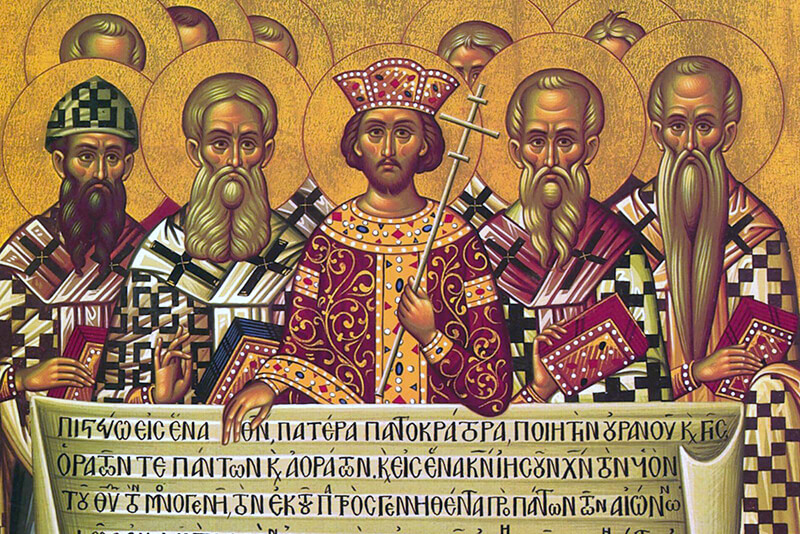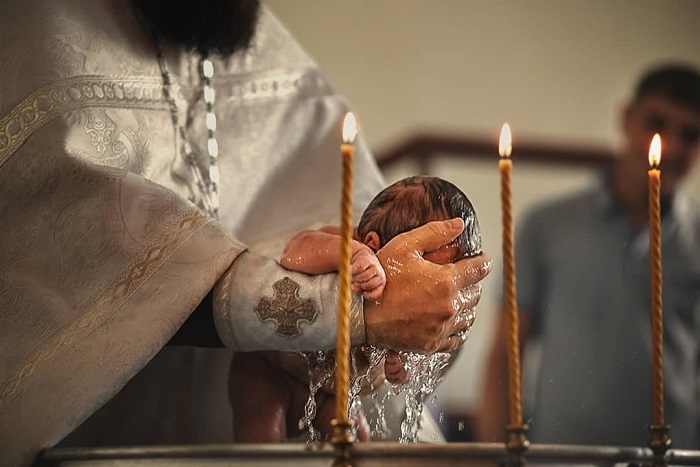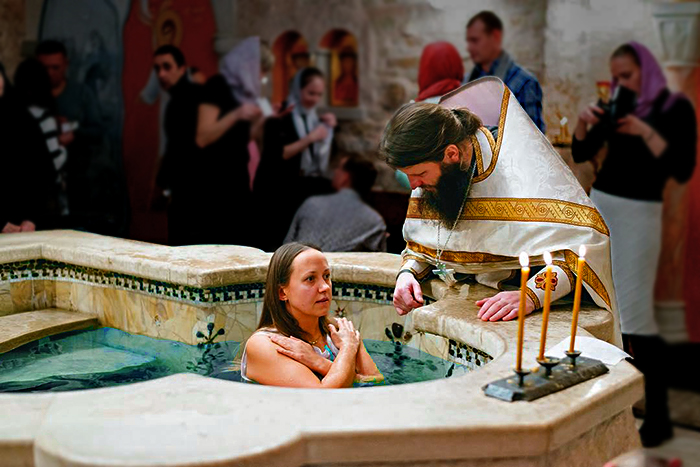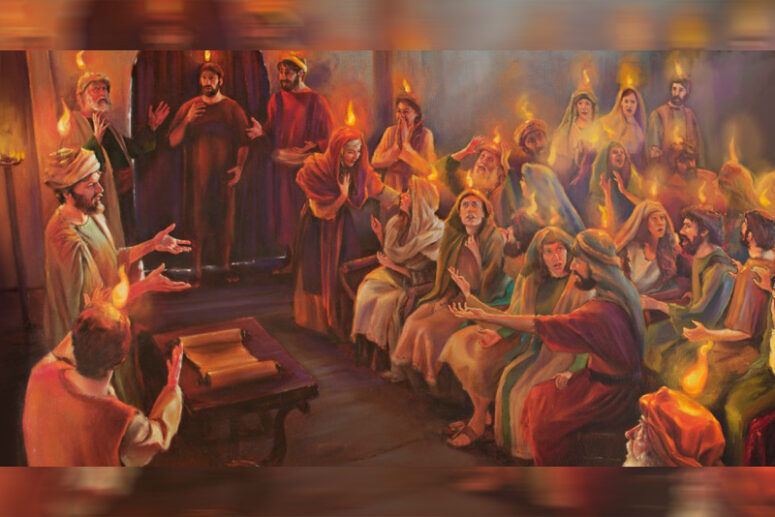
To an onlooker, the Church at the beginning of its history was more like a community of friends of Jesus than a fundamentally new religious institution distinct from all others. Essentially, the belief in Christ Who died on the Cross and resurrected as God and Messiah was the only thing that set the ancient faithful apart from the followers of different branches of Judaism. As we may notice from a careful reading of the first chapters of the Book of Acts, the Christians of Jerusalem did not see themselves as separate from the Jews. The Apostles observed the hours of worship and followed the order of the Old Testament. The fellowship met daily in the courts (Acts 2:46) of Jerusalem’s only Jewish temple. Christ’s apostles preached to their countrymen calling them to accept Christ as the Messiah and become members of God’s Church.
This adherence to Judaism among the first Christians was anything but a relic from the past to be shed by the Church in later years. Conversely, the Christians believed that they had a genuine understanding of the Old Testament and the essence of the Jewish life of worship. In their view, Judaism only made sense when it was centred on the faith in Jesus Christ.
The Old Testament was the forbear of the New Testament. The incarnation of the Lord gave it its final and complete meaning, and the good news of His resurrection the key to the understanding of the New Testament’s history.
Yet the worship of the first Christians was not limited to the observance of the New Testament practices. Already in the early days of the Church, A Christian’s life revolved around the Eucharist performed every day and involving the entire fellowship. The Christians broke bread in their homes and ate together with glad and sincere hearts (Acts 2: 46). To have an idea about the order of these first liturgies, we may refer to the early Christian text “Didache”, dating back from the late first to early second century AD.
“Now concerning the Eucharist, give thanks this way. First, concerning the cup: We thank thee, our Father, for the holy vine of David Thy servant, which Thou modest known to us through Jesus Thy Servant; to Thee be the glory forever… And concerning the broken bread: We thank Thee, our Father, for the life and knowledge which Thou modest known to us through Jesus Thy Servant; to Thee be the glory forever… Even as this broken bread was scattered over the hills, and was gathered together and became one, so let Thy Church be gathered together from the ends of the earth into Thy kingdom; for Thine is the glory and the power through Jesus Christ forever. But let no one eat or drink of your Eucharist unless they have been baptised into the name of the Lord.”
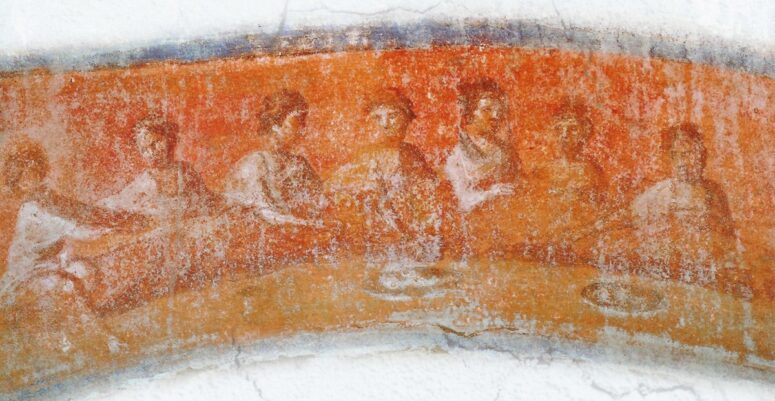
The word ‘liturgy’ translates from the Greek as ‘service’ and ‘common cause’. The liturgy was a part of the Ekklesia, a term from Greek civic life that referred to a competent gathering of citizens of an ancient city-state to decide on the most prominent matters of economic and political life. As strange as it may seem today, there was nothing more important for a citizen of an ancient city-state than participating in its political life. It was a key privilege and a duty of a citizen to attend and make a contribution. The use of this term by the Christians underlined the significance of the fellowship for the Church and the liturgy.
Contrary to what we might think today, the early Church was not an institution, but an event in pursuit of the common cause, the liturgy. For the early Christians, participation in the Eucharist was essential. It was an expression of a Christian’s responsibility before God to partake in the Body and Blood of Our Lord Jesus Christ, akin to their civic duty to attend the Ekklesia. Someone who had not attended the Liturgy or participated in the Eucharist could not call themselves a Christian in the strict sense of the word. By not participating, they ignored their duty and stayed outside of the Ekklesia and hence the Church.
This sense of deep mutual responsibility shared by the Christians of Jerusalem reinforced their remarkable unity of the mind and spirit to which Apostle Luke referred in his Book of Acts: The multitude of them that believed were of one heart and of one soul (Acts 4:32). The ideal of unity permeated the whole fellowship. It extended to worship and everyday life. Alexander Schmemann writes: “In early Christian writings, no word occurs more frequently than the word “brothers”, to which the early Christian attribute an existential and practical meaning.” The sharing of property that the early Christians practised was one of many manifestations of their complete unity and shared love.
The believers were one and had everything in common. All the believers were together and had everything in common. They sold property and possessions to give to anyone who had need. No one claimed that any of their possessions was their own, but they shared everything they had. There were no needy persons among them. From time to time those who owned land or houses sold them, brought the money from the sales and put it at the apostles’ feet, and it was distributed to anyone who had need. (Acts 2: 44 – 45, 4: 32 – 35).
It must be understood that for the Christians, the practice of having everything in common did not have an economic or social rationale; to associate this practice among early Christians with a form of Communism is a misconception. Their everyday lives were transformed in every minute detail, and all human relationships were rebuilt on a completely new foundation of love. The abolition of private property stemmed from the desire to remove all barriers to this transformation.
Yet with time, this idealistic unity began to erode. Disputes and feuds affected many of the fellowships established by the Apostles outside of Palestine. Yet the fellowship of Jerusalem of the first years of Christianity remained a model of life by the Gospel for every generation of Christians.
Translated by The Catalogue of Good Deeds
Source: https://foma.ru/kto-pridumal-tserkov-kak-zhili-pervyie-hristiane.html


